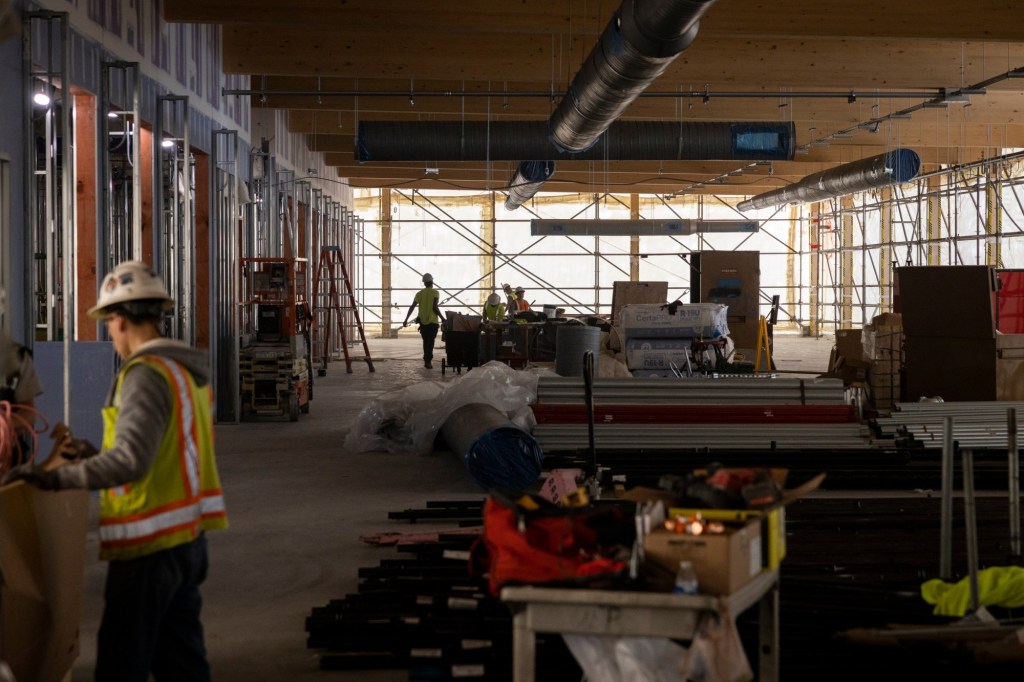As someone deeply involved in the construction and economic development industry here in Hampton Roads and across the mid-Atlantic, I’ve witnessed firsthand how federal energy policy can shape the direction of local investment, job creation and long-term economic growth. That’s why I strongly support Rep. Jen Kiggans’ Certainty for our Energy Future Act.
This legislation delivers exactly what businesses, workers and families across Virginia — and across America — need right now: stability, predictability and a path toward energy independence that strengthens our economy.
The premise is simple: By preserving federal energy tax credits that are already on the books, the act gives American businesses the confidence to invest in the future. When companies can plan for the long term, they build more, hire more and take the kinds of risks that lead to innovation and growth.
At MEB, we’ve worked on infrastructure projects across a wide variety of industrial sectors. What our clients want — what our communities need — is the certainty that a project started today will still make economic sense five or 10 years from now. This legislation does exactly that.
It also levels the playing field. Other nations are racing to scale up their energy production and industrial capacity, offering clear, long-term incentives to attract capital and technology. Without similar stability here, the U.S. risks falling behind. The Certainty for our Energy Future Act ensures that American companies stay competitive, not by adding new government programs, but by protecting and reinforcing existing policy that works.
This is smart policy for all sides of the aisle. For Republicans, this bill aligns with the principles of American energy leadership, reduced dependence on foreign sources, and the promotion of private-sector investment over government control. It helps meet our growing power demands without sacrificing fiscal responsibility or economic freedom.
For Democrats, the legislation continues a trajectory of smart, forward-looking investment in energy infrastructure, clean power and job creation. It supports the kind of high-wage, skilled labor jobs that lift working families and revitalize industrial corridors across our country.
In Hampton Roads and throughout Coastal Virginia, we’re already seeing the benefits of energy investment — whether it’s shipbuilding innovation, offshore wind staging or advanced manufacturing. But to sustain and grow that progress, we need the private sector to know the rules won’t change midstream. Predictability fuels confidence, and confidence fuels job creation.
It’s not just about big companies either. Small and mid-sized contractors, like many we partner with, stand to benefit greatly from a stable and growing energy sector. These are the firms hiring local workers, training apprentices and supporting community nonprofits. Their success is directly tied to whether larger-scale investments stay on track.
Kiggans’ bill protects that momentum. It provides a foundation for continued collaboration between the public and private sectors — without picking winners or micromanaging outcomes. Instead, it ensures that if an American company wants to invest in energy innovation, they’ll have the policy framework to do it.
Sign up for Viewpoints, an opinion newsletter
In an era of economic uncertainty and geopolitical instability, energy security is national security. It’s also economic security. The Certainty for our Energy Future Act helps keep energy affordable for families, strengthens America’s supply chains and empowers job creators to keep growing.
I commend Kiggans for her leadership and urge Congress to act quickly to pass this important legislation. This is a time for pragmatism, not partisanship — for making decisions that support American workers, American competitiveness and American energy independence.
Let’s give our businesses the certainty they need to build the future — and let’s make sure that future is powered right here at home.
Eric Keplinger, AIA, LEED AP, of Virginia Beach is the vice president of business development for MEB and assistant secretary of the Virginia Beach Development Authority. He is a graduate of Virginia Tech with a bachelor’s in architecture from the College of Architecture and Urban Studies and a past president of the Hampton Roads Chapter of the Design Build Institute of America.
